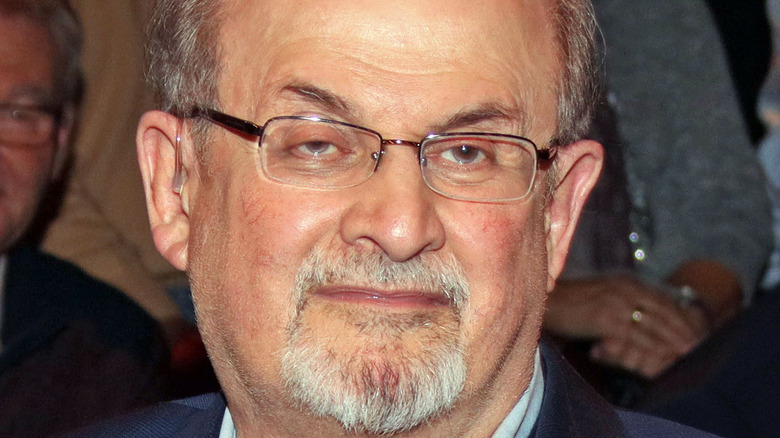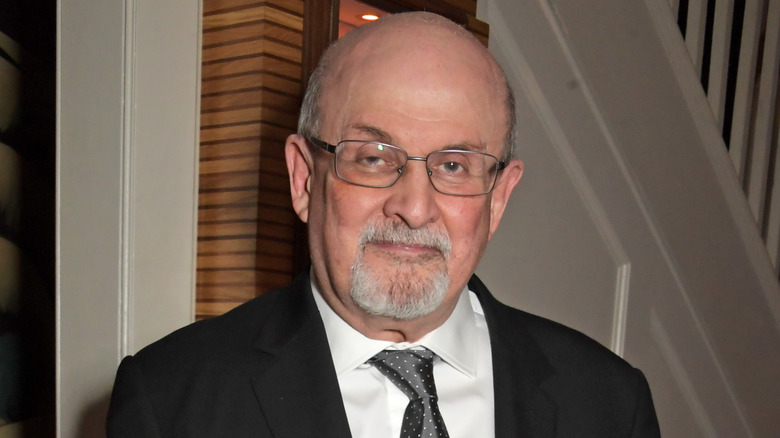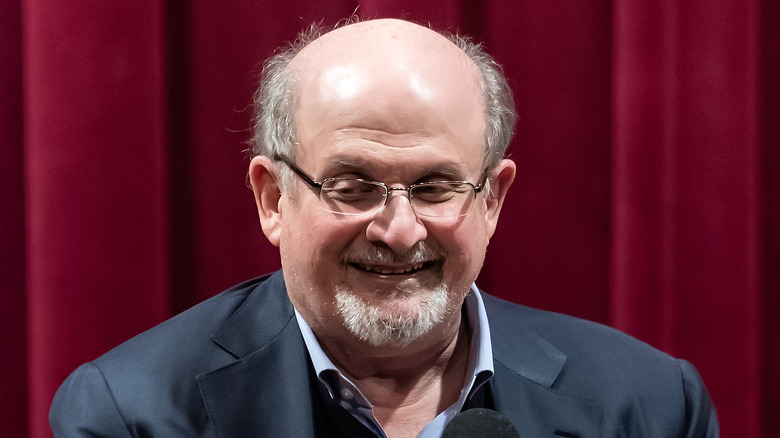The $3 Million Bounty On Salman Rushdie Explained
On August 12, Indian-born novelist Salman Rushdie was attacked at a panel discussion for the Chautauqua Institution in western New York. In the 1980s, a bounty from the Iranian government was put on Rushdie, author of "The Satanic Verses," a fictional work which includes depictions of the Islamic prophet Muhammad. Rushdie was 75 years old when the New York assault took place. As of this report, the author's condition was unknown, based on reporting from CNBC.
According to the AP, at the morning event a lone male individual rushed the stage where Rushdie was speaking. After appearing to physically engage with the assailant, Rushdie then fell to the ground, surrounded by concerned onlookers. The shocked audience was ushered from the theater. Rushdie reportedly received at least one stab wound in the neck. Rushdie was transported by helicopter to a nearby hospital. The alleged attacker was taken into custody at the scene, as the AP goes on to report.
The Iranian government distanced itself from the Rushdie bounty
As NPR notes, the Iranian government has since distanced itself from the 1989 fatwa, or edict, from then-Iranian leader Ayatollah Ruhollah Khomeini calling for Rushdie's death. AP reports that more than $3 million has been offered for Rushdie's death. A report by Politico credits a "semi-official Iranian religious foundation" with increasing the original bounty, of $2.8 million, up to $3.3 million in 2012. More money was added to the bounty as recently as 2016, according to Reuters.
According to NPR, "The Satanic Verses" was controversial among some in the Muslim world for its characterization of the Muslim prophet, Muhammad. Considered blasphemous, the book was banned in Iran and elsewhere around the world, with riots over the book's publication in Mumbai, India, where 12 people were killed. As a result of the fatwa, Rushdie went into hiding under the protection of the British government, where Rushdie lived. Only after nine years in seclusion did Rushdie reemerge to make public appearances.
Rushdie continued to speak out against religious extremism
Even in the face of death threats, Rushdie continued to publish novels and advocate against religious extremism. At one point, Rushdie had served as president of PEN America, a U.S.-based nonprofit promoting free expression. In response to Rushdie's stabbing, Suzanne F. Nossel, the present CEO of PEN, said in a statement (via AP), "We can think of no comparable incident of a public violent attack on a literary writer on American soil ... Salman Rushdie has been targeted for his words for decades but has never flinched nor faltered," Nossel added.
Per the New York Post, New York Governor Kathy Hochul commented, "Here's an individual (Rushdie) who has spent decades speaking truth to power, someone who has been out there unafraid, despite the threats that have followed him his entire adult life." Rushdie was being well cared for at a New York hospital, Hochul added. As of this report, the Rushdie attacker was not identified. Rushdie's interviewer on stage at the event, Harry Reese, also received minor injuries in the assault (via CNBC).


